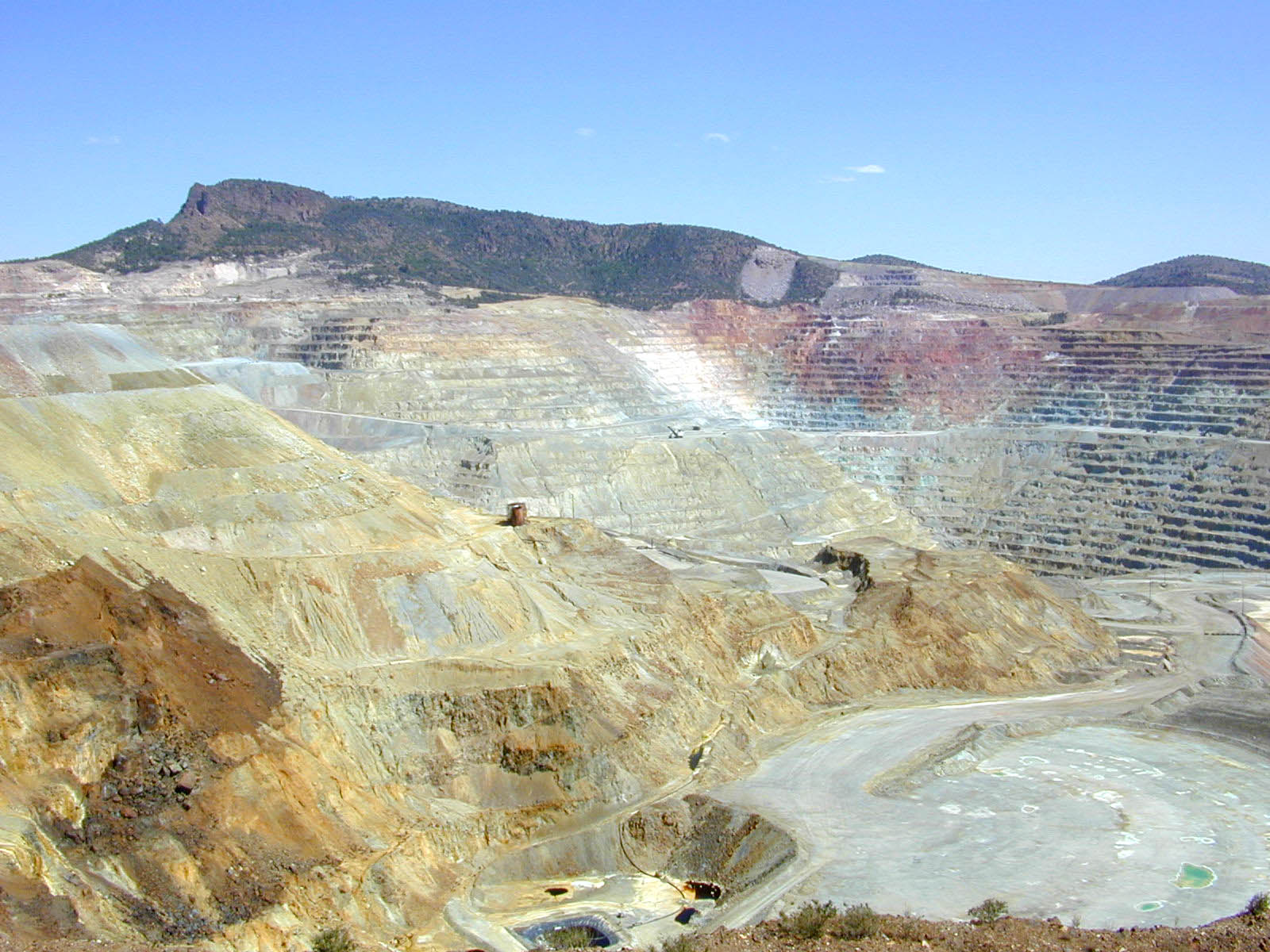 On my way to work this morning I heard a brief story on NPR about the impact of the current late blight epidemic on local farmers.
On my way to work this morning I heard a brief story on NPR about the impact of the current late blight epidemic on local farmers.One organic farmer explained how he would suffer a total loss this year without spraying some sort of fungicide on his crops. Unfortunately, to keep his organic certification, his best option was to spray copper, a naturally occurring chemical
(inset: copper strip-mine in NM).
He said he would usually only have to spray copper on his land in October but because of the intensity of the current epidemic, he has been spraying it every five days.
Picture what impact it has on his local ecosystem to have that amount of heavy metal pollution introduced to it. It would be more sustainable to use a modern synthetic fungicide that has very limited non-target toxicity and rapidly decomposes when exposed to sun and water.
Copper is a "biocide," meaning it hurts all organisms, and it lasts forever...

Agree with the overuse of copper. Such a shame. Too bad the organic industry can not see the forest through the trees. We have learned a lot as modern agriculturist from the organic movement. I think it time to turn the page into the next era of what sustainable agriculture should look like.
ReplyDeleteOrganic farmers should be breeding blight resistant varieties and varieties that produce adequate in their conditions. Instead they are using varieties that have been breed with synthetic fertilizers and chemicals for generations, and have no strengths or resistances anymore.
ReplyDeleteThis overuse of copper is a bad idea. not only will it pollute his environment with excess copper (which will probably harm his plants in the future), but he is also not looking for the few plants in his plots that may have escaped this fungus. He really should be saving seeds like mad from any plants he has that have survived by way of natural defenses, and then in a few generations of planting out these seeds, he might have something quite valuable.